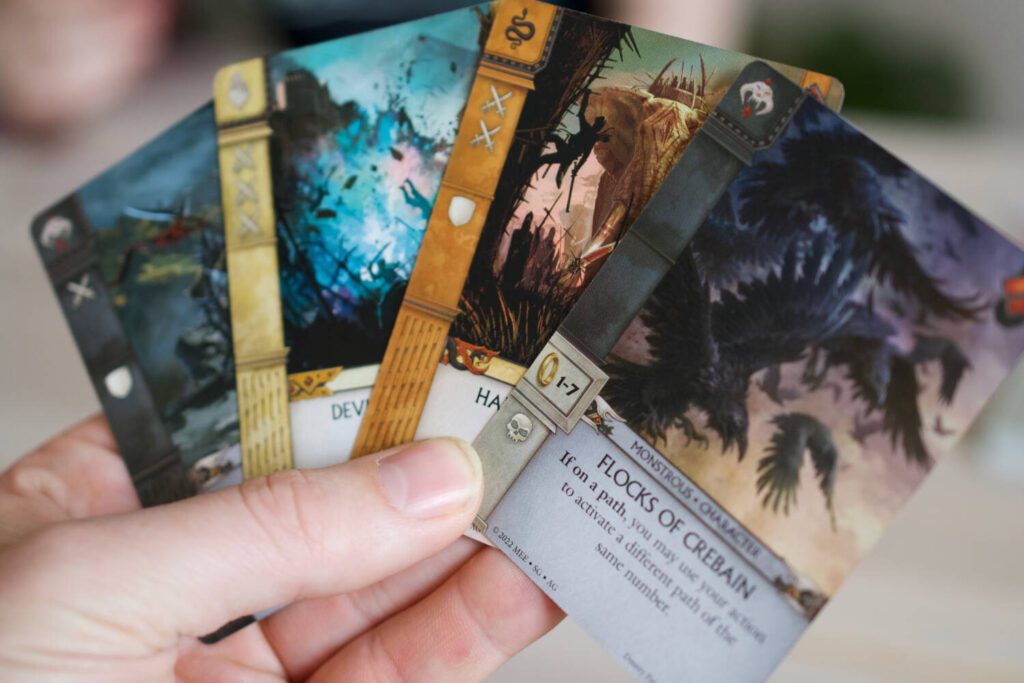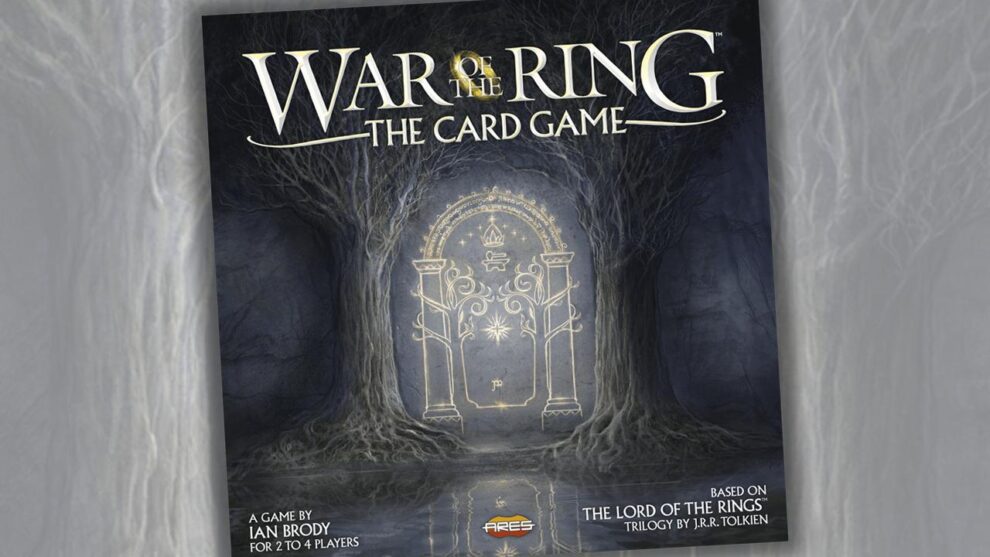Disclosure: Meeple Mountain received a free copy of this product in exchange for an honest, unbiased review. This review is not intended to be an endorsement.
I love War of the Ring, but I can never find the time, let alone the space, to play it. Rightfully considered one of modern board gaming’s crowning achievements, War of the Ring is a remarkable blend of theme and gameplay that results in some of the best storytelling in The Hobby™. It is an unfortunate reality that not everyone has three or four hours and a table the size of a Honda Fit, let alone a friend ready to take the plunge.
It is partially with that in mind that publisher Ares Games released War of the Ring: The Card Game, a two-to-four player card game that covers the same thematic ground. It has an impossible mission brief: turn a sprawling, miniatures-laden affair into a straightforward card game.
Miracle of miracles, War of the Ring: The Card Game largely succeeds.
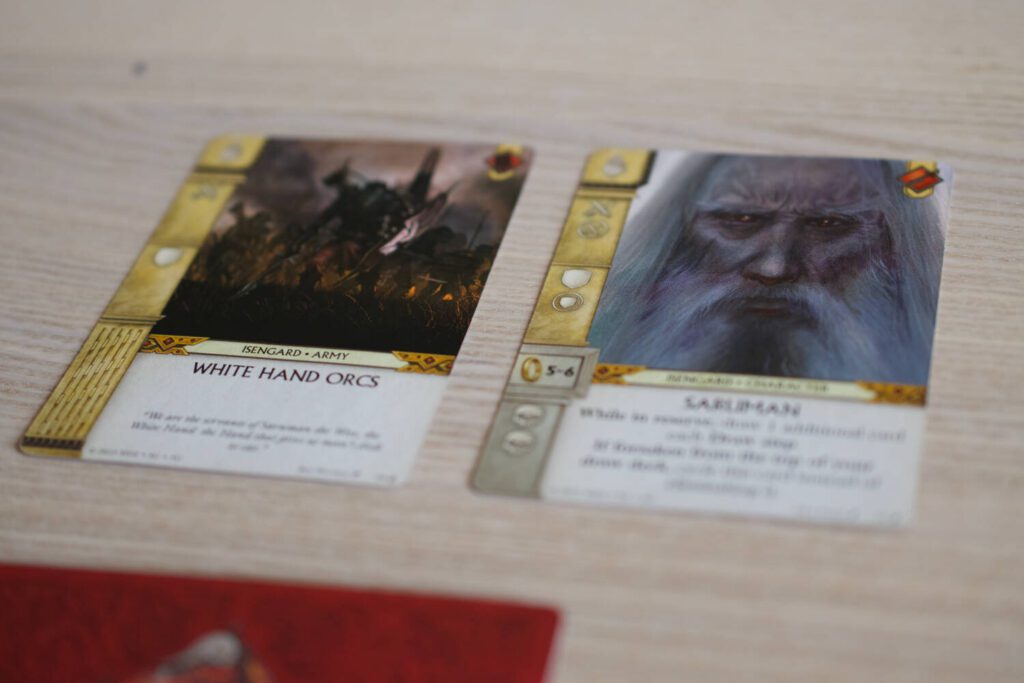
Play/Discard
Players split into two teams: two players control the Free Peoples of Middle Earth, while the others marshal the forces of the Shadow Armies. Each player’s deck is filled with unique cards, representing a combination of the armies, characters, items, and events that define The Lord of the Rings as a property.
Most of your turns are spent playing or deploying those cards. Playing cards is simple, since War of the Ring: The Card Game doesn’t involve any resources. There are no currencies to keep track of, no mana pools or anything of that sort. Instead, every card play comes with the simplest trade-off imaginable: to play a card, you have to discard a card.
The idea is so simple that I’m sure it has been done before, but I’ve never seen it. It is absolute brilliance. In ever decision you make now, there is a tradeoff that involves putting something else off until later. War of the Ring: The Card Game is a design in which your deck constantly cycles, so you will almost certainly see the card again, but you may not see it for quite a while. As you play multiple sessions, learning the ins and outs of the game, you develop a sense of what cards will be more useful when, but it’s never certain. At least three or four times a game, I found myself wishing I’d made a different choice in the previous round.
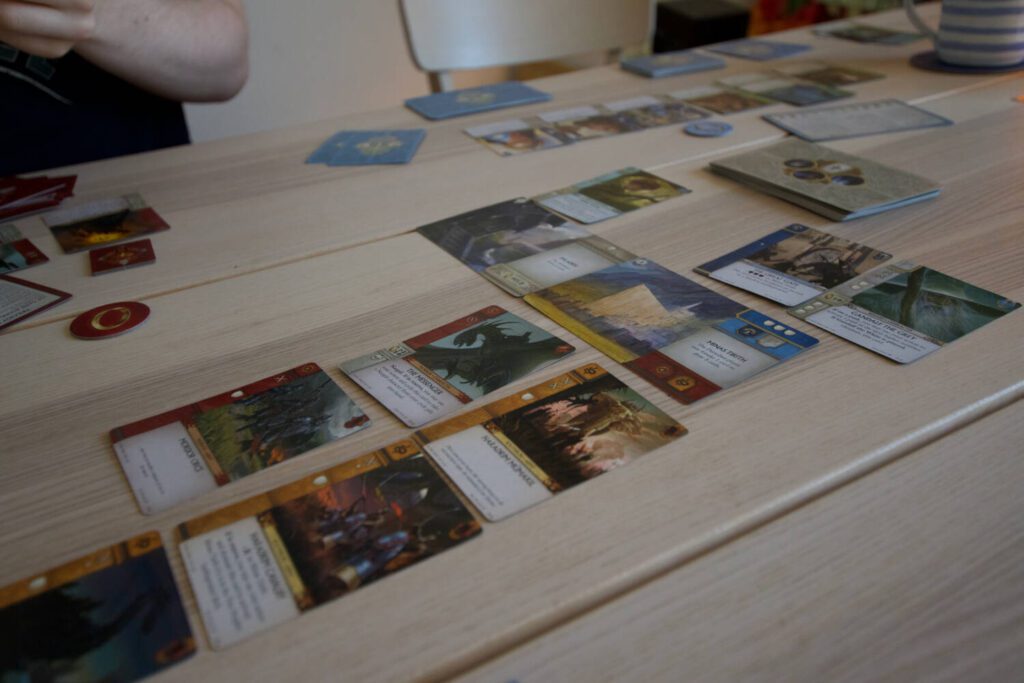
Cards Against Orcmanity (I regret nothing)
Over up to nine rounds, the two armies duke it out across two fronts. Every round has a Battleground and a Path, each represented by an oversized card. Military strength is sent to the Battlegrounds, your Helm’s Deeps, your Pelargirs, your Edorasses (tee-hee). Whichever side has the most strength at the end of the round takes the card, adding its point value to their end-of-game score.
The Paths are a bit more thematically nebulous, a sort of spiritual tug-of-war representing the corruptive powers of the ring. If the Free Peoples end a round with more Protection on the Path than there is Corruption, they score the card. Otherwise, the Shadow Armies score the excess Corruption as points.
Taken together, the Battleground and Path cards do a good job of replicating the two-layered conflict of the original game, as the Free Peoples balance their focus between deploying armies to slow the spread of evil and dedicating resources to moving Frodo and Sam closer to Mt. Doom.
Oh, there’s one other bit of timing to consider: cards that you play this round cannot be deployed to either the Battleground or the Path. You’re banking up your army for the future. Between the need to discard a card to play another one and the lag that plays into your choices, decision making in War of the Ring: The Card Game is occasionally agonizing. I mean that as a strict compliment. War of the Ring is full of impossible decisions. It’s only right that The Card Game would be the same.
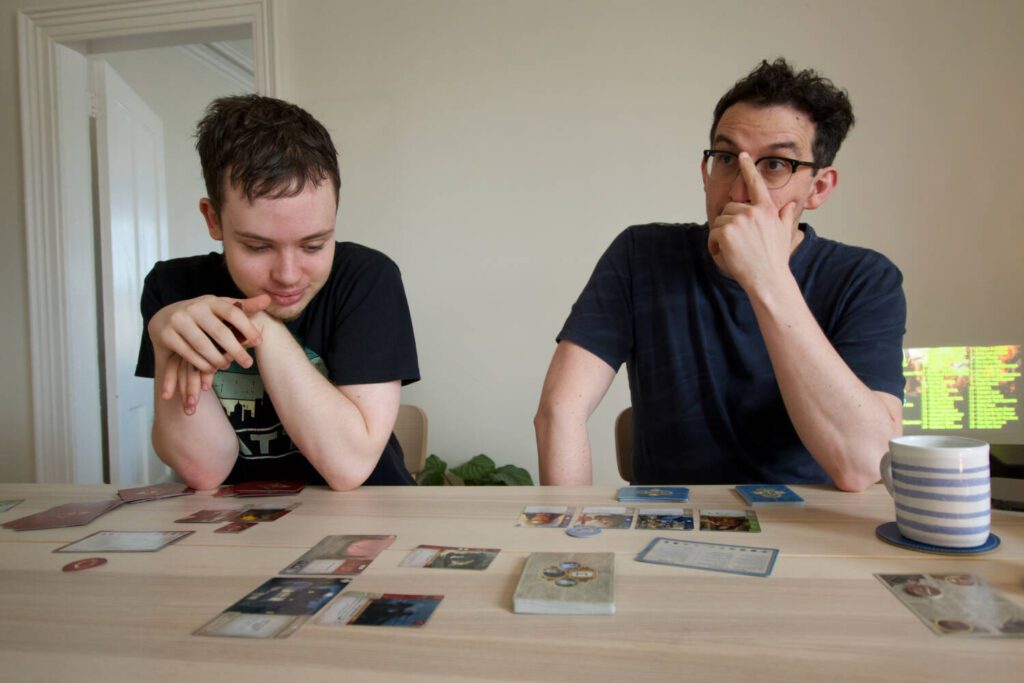
Gimme Gimme More Gimme Gimme
The experience of playing War of the Ring: The Card Game drives home an inevitable conclusion: you can’t reduce War of the Ring. The ungainliness is what makes it what it is, a blistering and obsessive experience. All those minis, that massive board, the dozens of complex cards, the capricious dice, the fundamental incompatibility of those dice with your plans, all of it serves to make the whole.
War of the Ring: The Card Game makes admirably due, though. It doesn’t feel like a lesser version of the same game, because it very much succeeds at being its own design. Ian Brody deserves all the credit in the world for this excellent game. I can’t get over the brilliance of discarding a card to play a card. Give me a million more games with that system. Lord knows I’ll play ‘em.
